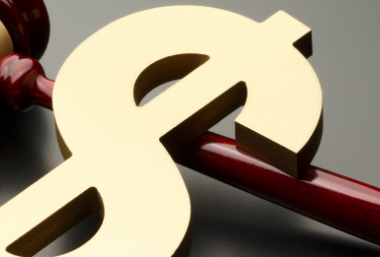What you need to know
Before commencing proceedings for copyright infringement, it is vital to ensure the party seeking damages against an infringer is not only entitled to do so, but is also able to recover the particular type of damages sought.
The Courts may not always be as lenient as they were in the latest Oraka case discussed below.
The latest Oraka decision
There was much fanfare in June this year when the High Court of New Zealand made a record $4.1 million compensatory damages award against three parties found to have unlawfully copied the design of a unique cup assembly owned by Oraka Technologies Ltd. The design was used on asparagus grading machines sold by a related company, Oraka Graders Ltd.
In the latest chapter of this long-running dispute brought by the Oraka companies and another against Napier Tool & Die Ltd, Geostel Vision Ltd, Paul Daynes and Gordon Robertson (collectively‘the infringers’), the Court of Appeal has correctly overturned the High Court’s damages award.
The Court of Appeal held that the High Court couldn’t award damages to Oraka Technologies (the copyright owner) for losses directly suffered by its co-plaintiff Oraka Graders. This was despite the Court of Appeal’s earlier finding that the infringers were liable for ‘a plain infringement of [Oraka Technologies] copyright’ by unlawfully copying and reproducing the design of its unique cup assembly.
Why damages could not be awarded?
While Oraka Technologies owned the copyright in design drawings which were the basis for a cup assembly for an asparagus grading machine, it had granted Oraka Graders a non-exclusive license to use and sell asparagus graders featuring the unique cup assembly.
The Court of Appeal said Oraka Technologies was not entitled to an award of damages to compensate for Oraka Grader’s lost sales in circumstances where Oraka Graders didn’t own, or have an exclusive licence to use, the copyright in the design drawings for the cup assembly.
With that finding made, the Court of Appeal agreed that the High Court damages award should be set aside, but the three Justices could not agree whether that should have been the end of the matter.
Playing a get out of jail free card
In a lucky escape for Oraka Technologies, in what could have ended up as a pyrrhic victory after more than a decade of litigation, two of the three Court of Appeal Justices decided that the case should be sent back to the High Court to reassess damages on a more conventional basis.
Instead of determining damages for Oraka Technologies on the basis of lost sales suffered by Oraka Graders, the Court said they should be determined on the basis of a notional licence fee that would have been payable by the infringers to Oraka Technologies for the use of its design drawings for the cup assembly. The license fee would be payable in respect of each infringing use during the period from the commencement of the infringing activity in 2001 until copyright expired in the design in 2009. This is despite Oraka Technologies pursuing a damages claim in circumstances where the kind of damages sought were not available.
Exercising this kind of discretion was not a decision that the Court of Appeal made lightly. Here, however, the Justices felt motivated to do so because the infringement of copyright was one that ‘deserve[d] not only denunciation but also a remedy’. They also said this was a case in which the nfringers had brought the litigation on themselves and it would be unjust to leave Oraka Technologies without any relief.
The High Court will now decide what an appropriate license fee would have been if the parties can’t agree on this themselves.
Could Oraka have done anything differently?
Hindsight is always 20:20, but prior to commencing proceedings back in 2005, the Oraka parties may have had options available to them to structure their ownership and licensing arrangements in a more favourable manner, that would have enabled the $4.1 million damages award given by the High Court to better withstand the Court of Appeal’s scrutiny.
If you would like advice about intellectual property due diligence, or your options for structuring intellectual property ownership and licensing arrangements for your business, please contact us.

